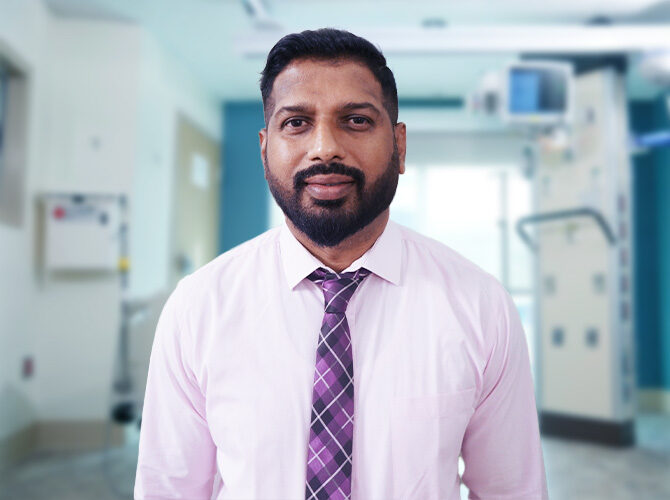An orthopedic doctor, also known as an orthopedic surgeon, is a medical professional who specializes in the diagnosis, treatment, and management of musculoskeletal conditions and injuries. They work in hospitals and clinics, providing care to patients with a wide range of orthopedic problems.
Here are some key responsibilities of an orthopedic doctor in a hospital:
- Patient Evaluation and Diagnosis: Orthopedic doctors assess patients who have musculoskeletal complaints, such as bone fractures, joint pain, sports injuries, or deformities. They take a detailed medical history, perform physical examinations, and order diagnostic tests like X-rays, MRIs, or CT scans to diagnose the condition accurately.
- Surgical Intervention: Orthopedic surgeons perform various surgical procedures to treat musculoskeletal conditions. This may include procedures such as joint replacement surgeries, fracture repair, arthroscopy (minimally invasive joint surgery), spinal surgeries, or corrective surgeries for congenital or acquired deformities.
- Non-Surgical Treatment: Orthopedic doctors also provide non-surgical treatment options for musculoskeletal conditions. They may recommend physical therapy, medication, bracing or casting, injections (such as corticosteroids or viscosupplementation), or other conservative approaches to manage pain, improve function, and promote healing.
- Trauma Management: Orthopedic surgeons are often involved in the management of traumatic injuries, such as fractures, dislocations, and soft tissue injuries. They stabilize fractures, realign dislocations, and perform emergency procedures to address acute orthopedic trauma.
- Rehabilitation and Follow-up Care: After surgery or non-surgical treatment, orthopedic doctors monitor patients’ progress and provide guidance on rehabilitation and physical therapy exercises to aid in recovery. They may also follow up with patients over time to ensure the treatment is effective and make any necessary adjustments to the care plan.
- Collaborative Approach: Orthopedic doctors work closely with other healthcare professionals, including radiologists, physical therapists, and occupational therapists, to provide comprehensive care to their patients. They may consult with specialists from other medical disciplines, such as rheumatologists or neurologists, to ensure integrated and holistic treatment when needed.
- Education and Research: Orthopedic doctors often engage in educational activities, teaching medical students, residents, and fellows. They may also participate in research to advance knowledge in the field of orthopedics, develop new treatment techniques, or improve surgical procedures and outcomes.
Becoming an orthopedic doctor requires completing a medical degree followed by a residency program in orthopedic surgery. Some orthopedic surgeons may choose to pursue additional fellowship training to specialize further in specific areas, such as sports medicine, spine surgery, joint replacement, or pediatric orthopedics.
It’s important to note that while orthopedic doctors primarily focus on surgical and non-surgical management of musculoskeletal conditions, there may be some variations in their scope of practice based on individual preferences, sub-specialization, and the specific hospital or healthcare system they work in.


